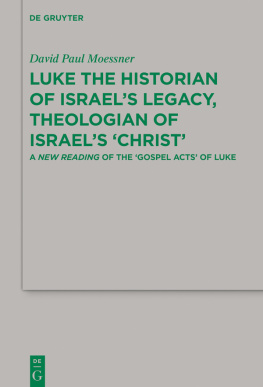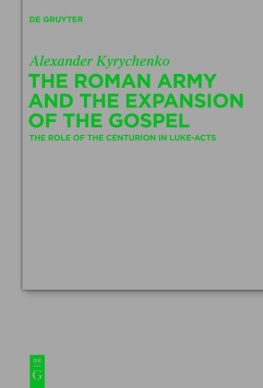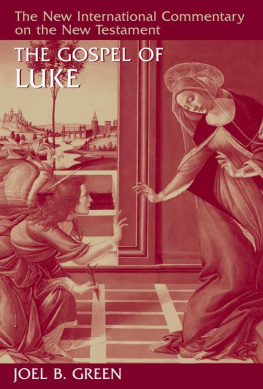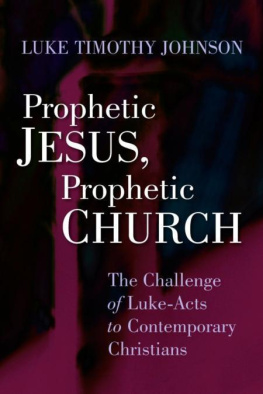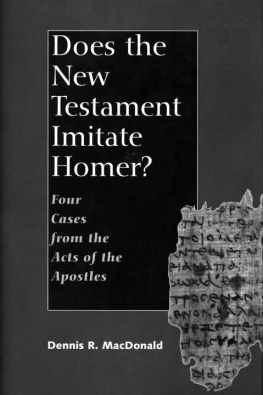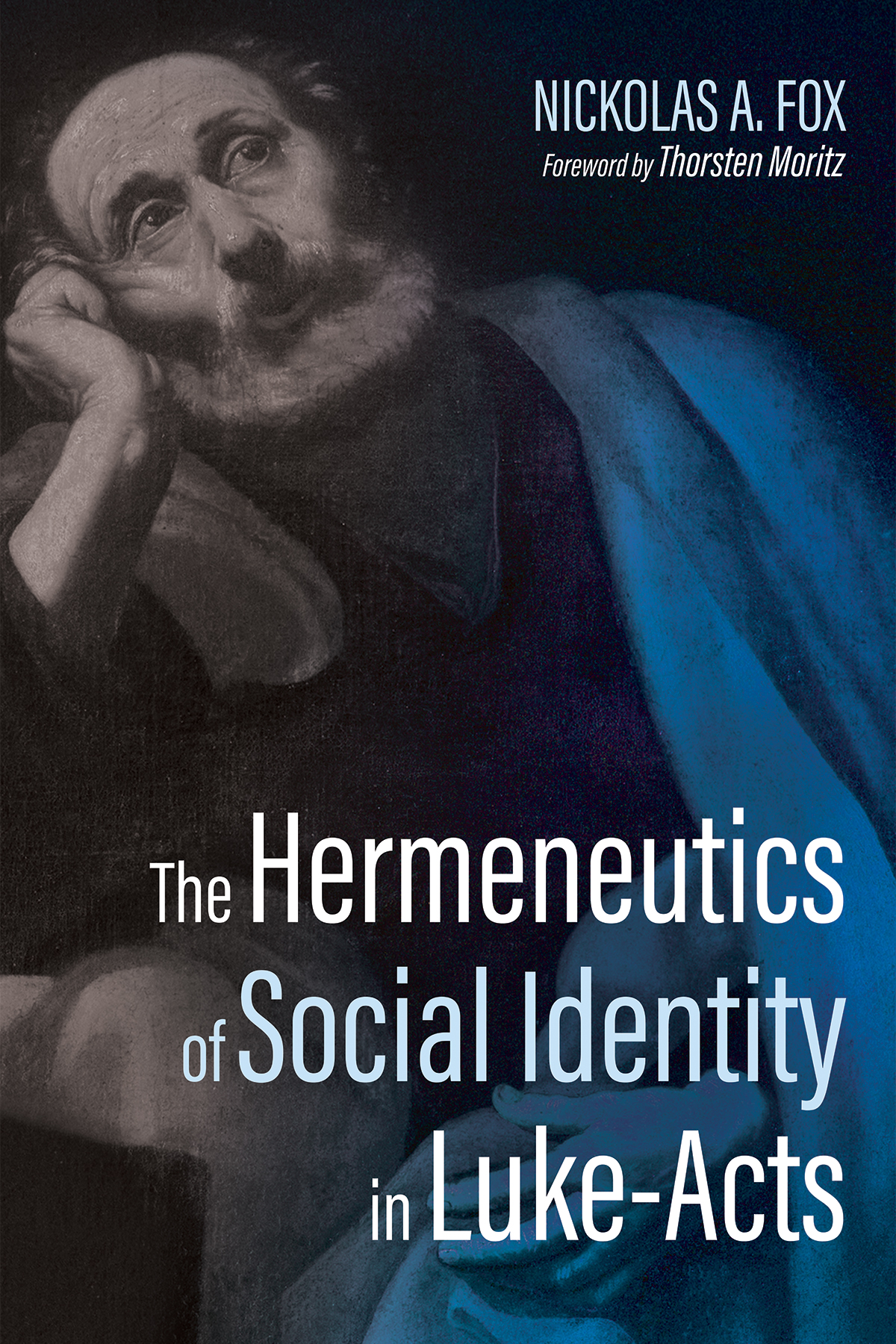Foreword
O ne of the more intriguing omissions in New Testament scholarship has been the question of the performance of Jesus core personnel (the Apostles and other significant leaders in the early church). To be fair, Marks brutal attention to the failures of the disciplesreplicated to a significant extent in the other Gospelshas received a fair amount of attention on the level of narrative criticism. However, scholars have typically refrained () from drawing the obvious, yet painful theological lessons from this state of affairs and () from pursuing rigorously the remarkable storyline of the Acts of the Apostles in which the latter are, to be frank, astonishingly ineffectual and for the most part quite simply absent!
Nick Fox does not set out to rectify this situation as such. He does, however, end up offering an examination of the speeches in Acts that advances the above-mentioned discussion considerably. How so? Part of the answer is found in his particular approach (Social Identity Theory); another in his attention to the role of God-fearers in Acts, that is, a loosely defined group of potential and actual Gentile believers whoby definition!start at the opposite end from the Apostles. Whereas the latter were fellow-Jews, coached by Jesus to carry the gospel forward into the Roman empire, it is actually the former that succeeded in doing so, alongside other minor characters. That expression captures well the contrast between the actual achievers in Acts (including Gentiles) and those who were supposed to achieve (Jesus Jewish disciples as the major characters in the Gospels)but who failed almost comprehensively, with a few exceptions in the very early chapters of Acts (eleven of the Twelve) and Peter, albeit only in the first half of Acts. To be clear, whereas Fox neither focuses on the Apostles failures to show up when and where most needed, nor on the evangelistic role of the God-fearers per se, both of these are implications of Acts that serve well to frame the relevance of his discussion, not least because the manner and circumstances of their inclusion calls for the implied audience to capitalize on said inclusion for purposes of joiningand thereby advancingthe story of Gods kingdom throughout the Roman empire.
The question, then, becomes, what can Social Identity Theory (SIT) contribute to the theological concerns surrounding the social storytelling of Acts? SIT has increasingly entered the field of New Testament studies. Since LukeActs engages so vividly the role of God-fearers and perceived outsiders in the early Christian re-centering of Gods people around the person and faith of Jesus, Lukes two-volume work has been among the first in the New Testament to attract the attention of SIT. By developing and using a modified version of SIT, Nick Fox addresses directly Lukes decentralizing of ecclesial formation in the wake of the early Christian proclamation of the risen Christ. While others (Joel Green, Holly Beers, Luke Timothy Johnson) have noticed this phenomenon in LukeActs before, a fuller treatment of Lukes particular narrative strategies pertaining to the inclusion of outsiders was needed. The outward movement inherent in Lukes concept of Gods people far transcends the merely geographical (Temple, Jerusalem, land) and personality-based (Apostles and other leaders in Jerusalem) and encompasses nothing less than the surprising inclusion of the minor characters who are now the SPIRITually empowered ones to transform the very core of what it means to be communities of Gods people beyond Israel.
Thorsten Moritz, PhD
Preface
T he chance to research and write on LukeActs has been a great privilege. It has been seven years since I started writing a research proposal, and those years have seen a lot of change: personal and academic growth, spiritual formation, deepened relationships, and certainly a few gray hairs.
The dissertation writing process is one that devotes rigorous attention to expanding scholarship in certain ways. However, if one is lucky, some of that good biblical flavor rubs off in the process, which has certainly been the case for me. I would like to quickly share three things that became much clearer to me while writing this book on LukeActs. These are more reflections of a Christian minister than of a LukeActs scholar, but sometimes those worlds overlap. In other words, if the reader might seek to gain devotional payoffs from reading this scholarly work, these might be good places to look.
- The Holy Spirit empowers mission
I have heard people say so many times in the Church, We dont want to get ahead of God. It is usually said to encourage prudence, wisdom, and patience among Gods people when they are trying to make a decision or discern Gods will. And those thingsprudence, wisdom and patienceare good things. We humans can be an impulsive, foolish, and impatient lot.
And yet, the picture is quite different in LukeActs, particularly when it comes to outreach and new missionary initiatives. Jesus ministers to tax collectors, Gentiles, Roman Centurions, prostitutes, and lepers long before the disciples seem ready to follow suit. Likewise in Acts, the Holy Spirit seems unwilling to wait for the apostles to get with the program of outward expansion and instead uses whosoever will (i.e., Stephen, Phillip, etc.) to accomplish the mission. In fact, much of the first half of Acts shows the disciples trying to catch up to what the Holy Spirit is already doing!
It is a good reminder to us. Perhaps, rather than reign in our eager expectations in wait for God, we would do well to look for what the Holy Spirit is doing in venues outside of our comfort zones and seek to join (or more likely catch up) with that work. To put it another way, I heard someone counter the question of the skeptic, Where is God working in the world today? with Where is God not working in the world today? This response is truer than we think; we only need eyes to see the Holy Spirits work and presence in uncommon and possibly uncomfortable places.
- God is more interested in radical inclusion than we are
We in the twenty-first century cannot fully comprehend the truly radical nature of a respected Jewish Rabbi partying with tax collectors, calling one of them to be his disciple (alongside a zealot), praising the faith of a Roman Centurion, and touching a leper. Likewise, for early Christians to enter the home of a Gentile, baptize an Ethiopian Eunuch, and declare the Jewish faith open to all people is a kind of iconoclastic change that sent ripples through the Middle East.
Pentecost lists fifteen nations that were represented at what is often considered the birth of the Church. Diversity, it seems, is the opening note. This continues through the middle of Acts, which is perhaps the most reorienting section of the New Testament, opening the faith to all people. And the final third of Acts is then devoted to Pauls missionary journeys in Gentile worlds and the trials that take him before a multiplicity world leaders.



